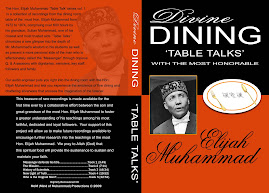Jeddah, Saudi Arabia
THE United States and other Western powers have for some time been pushing Saudi Arabia to make more gestures toward Israel. More recently, the crown prince of Bahrain urged greater communication with Israel and joint steps from Arab states to revive the peace process.
Saudi Arabia is the birthplace of Islam, the custodian of its two holy mosques, the world’s energy superpower and the de facto leader of the Arab and Muslim worlds — that is why our recognition is greatly prized by Israel. However, for all those same reasons, the kingdom holds itself to higher standards of justice and law. It must therefore refuse to engage Israel until it ends its illegal occupation of the West Bank, the Gaza Strip and the Golan Heights as well as Shabaa Farms in Lebanon. For Saudis to take steps toward diplomatic normalization before this land is returned to its rightful owners would undermine international law and turn a blind eye to immorality.
Shortly after the Six-Day War in 1967, during which Israel occupied those territories as well as East Jerusalem and the Sinai Peninsula, the United Nations Security Council passed a resolution stating that, in order to form “a just and lasting peace in the Middle East,” Israel must withdraw from these newly occupied lands. The Fourth Geneva Convention similarly notes “the occupying power shall not deport or transfer parts of its own civilian population into the territory it occupies.”
Now, Israeli leaders hint that they are willing to return portions of these occupied territories to Arab control, but only if they are granted military and economic concessions first. For the Arabs to accept such a proposal would only encourage similar outrages in the future by rewarding military conquest.
After the Oslo accords of 1993, Arab states took steps to improve their relationships with Israel, allowing for recognition in the form of trade and consular agreements. Israel, however, continued to construct settlements, making its neighbors understandably unwilling to give up more without a demonstration that they would be granted something in return.
Today, supporters of Israel cite the outdated 1988 Hamas charter, which called for the destruction of Israel, as evidence of Palestine’s attitude toward a two-state solution, without considering the illegalities of Israel’s own occupation. Israel has never presented any comprehensive formulation of a peace plan. Saudi Arabia, to the contrary, has done so twice: the Fahd peace plan of 1982 and the Abdullah peace initiative of 2002. Both were endorsed by the Arab world, and both were ignored by Israel.
In order to achieve peace and a lasting two-state solution, Israel must be willing to give as well as take. A first step should be the immediate removal of all Israeli settlements in the West Bank. Only this would show the world that Israel is serious about peace and not just stalling as it adds more illegal settlers to those already occupying Palestinian land.
At the same time, the international community must pressure Israel to relinquish its grip on all Arab territory, not as a means to gain undeserved concessions but instead as an act of good faith and a demonstration that it is willing to play by the Security Council’s rules and to abide by global standards of military occupation. The Arab world, in the form of the Arab peace initiative that was endorsed by 22 countries in 2002, has offered Israel peace and normalization in return for Israeli withdrawal from all Arab territories including East Jerusalem — with the refugee issue to be solved later through mutual consent.
There have been increasing well-intentioned calls for Saudi Arabia to “do a Sadat”: King Abdullah travels to Israel and the Israelis reciprocate by making peace with Saudi Arabia. However, those urging such a move must remember that President Anwar el-Sadat of Egypt went to Israel in 1977 to meet with Prime Minister Menachem Begin only after Sadat’s envoy, Hassan el-Tohamy, Sadat’s envoy, was assured by the Israeli foreign minister, Moshe Dayan, that Israel would withdraw from every last inch of Egyptian territory in return for peace. Absent a similar offer today from Israel to the leaders of Palestine, Lebanon and Syria, there is no reason to look at 1977 as a model.
President Obama’s speech in Cairo this summer gave the Arab and Muslim worlds heightened expectations. His insistence on a freeze on settlement activity was a welcome development. However, all Israeli governments have expanded settlements, even those that committed not to do so.
No country in the region wants more bloodshed. But while Israel’s neighbors want peace, they cannot be expected to tolerate what amounts to theft, and certainly should not be pressured into rewarding Israel for the return of land that does not belong to it. Until Israel heeds President Obama’s call for the removal of all settlements, the world must be under no illusion that Saudi Arabia will offer what the Israelis most desire — regional recognition. We are willing to embrace the hands of any partner in peace, but only after they have released their grip on Arab lands.
A version of this article appeared in print on September 13, 2009, on page WK16 of the New York edition.
http://www.nytimes.com/2009/09/13/opinion/13turki.html?th&emc=th
Information Researched By: Sister Anonymous









































No comments:
Post a Comment